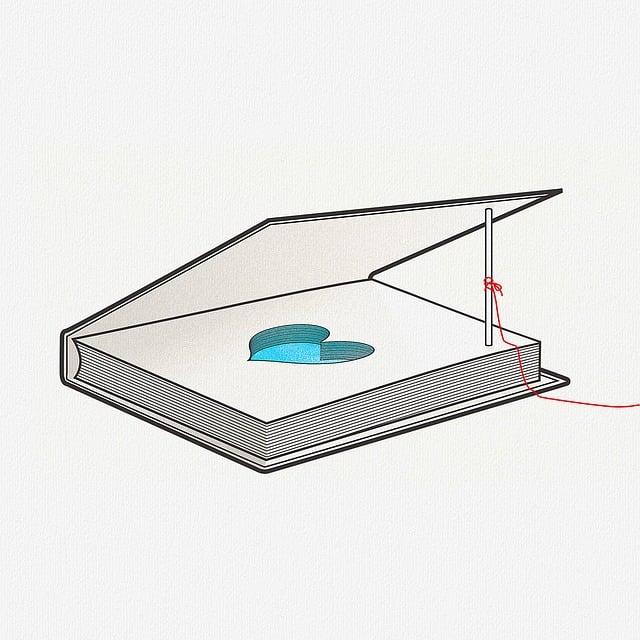Does Salt Water Help an Abscessed Tooth: Myths Busted
Are you suffering from the excruciating pain of an abscessed tooth? Desperate for relief, you may have heard whispers of a seemingly magical remedy: salt water. But before you rush to the kitchen for a DIY solution, it’s crucial to separate fact from fiction. In this article, we unravel the truth behind the age-old question: does salt water help an abscessed tooth? Prepare to have your myths busted as we delve into the realm of dental health, armed with knowledge and a clear, confident voice.
1. Understanding Abscessed Teeth: Causes, Symptoms, and Treatment Options
An abscessed tooth is a dental condition that occurs when a bacterial infection develops within the pulp of the tooth. It can cause severe pain and discomfort if left untreated. Understanding the causes, symptoms, and treatment options for abscessed teeth is crucial for maintaining oral health and preventing further complications.
Causes: The primary cause of an abscessed tooth is dental decay, which allows bacteria to enter the pulp chamber. Other factors that can contribute to an abscess include gum disease, a cracked tooth, or trauma to the tooth. Poor oral hygiene and a diet high in sugar can also increase the risk of developing an abscess.
Symptoms: Common symptoms of an abscessed tooth include persistent toothache, sensitivity to hot or cold temperatures, swollen gums, a bitter taste in the mouth, and bad breath. In some cases, the abscess may cause swelling on the face or jaw, difficulty swallowing or breathing, and fever. If you experience any of these symptoms, it is essential to seek dental care promptly.
Treatment Options: The treatment for an abscessed tooth typically involves draining the infection and eliminating the source of the problem. Root canal therapy is often recommended to remove the infected pulp and save the tooth. In more severe cases, extraction may be necessary. Antibiotics are commonly prescribed to fight the infection and reduce pain and swelling. Maintaining good oral hygiene, such as regular brushing and flossing, and visiting the dentist for regular check-ups can help prevent abscessed teeth.
2. Debunking the Myth: Does Salt Water Really Help with Abscessed Tooth Pain?
Many people believe that rinsing with salt water can help alleviate the pain caused by an abscessed tooth. However, this is actually a common misconception. While salt water rinses can provide temporary relief, they do not address the underlying cause of the pain and should not be considered a substitute for proper dental care.
Here are some key points to consider:
- Temporary relief: Salt water rinses can temporarily reduce inflammation and provide a soothing sensation in the mouth. This can help alleviate some of the discomfort associated with an abscessed tooth.
- No direct effect on the abscess: Despite the temporary relief, salt water rinses do not directly treat the abscess itself. An abscessed tooth is caused by a bacterial infection, and proper dental treatment is necessary to eliminate the infection and address the underlying issue.
- Importance of professional dental care: It is crucial to seek professional dental care if you suspect you have an abscessed tooth. A dentist will be able to diagnose the problem accurately and provide appropriate treatment, which may include antibiotics, drainage of the abscess, or a root canal procedure.
In conclusion, while salt water rinses may offer temporary relief, they do not effectively treat an abscessed tooth. It is essential to consult a dentist for proper diagnosis and treatment to address the underlying cause of the pain and prevent further complications.

3. The Science Behind Salt Water Rinse: Exploring its Potential Benefits for Dental Health
When it comes to maintaining good dental health, many people turn to salt water rinse as a natural and effective remedy. But what is the science behind this age-old practice? Let’s dive in and explore the potential benefits of salt water rinse for dental health.
1. Reduces inflammation: One of the key benefits of salt water rinse is its ability to reduce inflammation in the gums. Salt has natural antibacterial properties that can help kill bacteria and reduce swelling, making it an ideal solution for those suffering from gum disease or gingivitis.
2. Promotes healing: Salt water rinse creates an environment that promotes healing. It can help speed up the recovery process for oral wounds, such as canker sores or minor mouth irritations. The salt water solution works by drawing out excess fluid and toxins, allowing the affected area to heal more quickly.
3. Maintains oral hygiene: Using salt water rinse as part of your oral hygiene routine can help maintain a healthy mouth. It can effectively rinse away food particles and debris, reducing the risk of plaque buildup and cavities. Additionally, salt water rinse can freshen breath by eliminating odor-causing bacteria.
Overall, the science behind salt water rinse suggests that it can provide a range of benefits for dental health. From reducing inflammation and promoting healing to maintaining oral hygiene, incorporating this simple and natural remedy into your routine may be worth considering.

4. A Closer Look at the Benefits of Salt Water Rinse for Gum Infections
When it comes to gum infections, salt water rinse has been proven to be an effective and natural remedy. Here are some of the benefits of using salt water rinse for gum infections:
- Reduces inflammation: The saline solution of salt water rinse helps to reduce the swelling and inflammation associated with gum infections. It can provide relief from pain and discomfort.
- Kills bacteria: Salt has antimicrobial properties that can help kill the bacteria causing the gum infection. Regular use of salt water rinse can stop the growth of bacteria and prevent further infection.
- Speeds up healing: Salt water rinse promotes healing by increasing blood flow to the infected area. It can help in the regeneration of damaged tissue and accelerate the recovery process.
- Improves oral hygiene: Salt water rinse not only treats gum infections but also improves overall oral hygiene. It can help remove food particles and debris from hard-to-reach areas, reducing the risk of further infection.
It is important to note that salt water rinse should be used as a complementary treatment and not as a substitute for professional dental care. If you are experiencing severe gum infections or persistent symptoms, it is always best to consult a dentist for proper diagnosis and treatment.
5. Practical Tips for Using Salt Water Rinse to Alleviate Abscessed Tooth Discomfort
When it comes to alleviating the discomfort caused by an abscessed tooth, a salt water rinse can be a highly effective remedy. Here are some practical tips to ensure you make the most out of this natural solution:
- Mix the solution: Start by dissolving half a teaspoon of salt in eight ounces of warm water. Stir the mixture until the salt is completely dissolved.
- Rinse gently: Take a small sip of the salt water and swish it around your mouth for about 30 seconds. Make sure to focus on the affected area, allowing the solution to come into contact with the abscessed tooth.
- Spit it out: After swishing the salt water around your mouth, spit it out into the sink. Do not swallow the solution, as it may contain bacteria from the infected tooth.
- Repeat regularly: To experience maximum relief, repeat the salt water rinse two to three times a day. This will help reduce inflammation and promote healing.
- Combine with other remedies: While a salt water rinse can provide temporary relief, it is important to seek professional dental care for a long-term solution. Consider combining the rinse with over-the-counter pain relievers or natural remedies recommended by your dentist.
Using a salt water rinse to alleviate abscessed tooth discomfort is a simple and cost-effective method that can provide temporary relief. However, it is crucial to consult with a dental professional to address the underlying issue and prevent further complications. By following these practical tips, you can effectively manage the pain and discomfort associated with an abscessed tooth until you receive proper treatment.
6. Exploring Alternative Remedies: Are There Better Options Than Salt Water Rinse?
When it comes to oral care, salt water rinse has long been recommended as a natural remedy for various dental issues. While it can be effective in reducing inflammation and promoting healing, there are alternative remedies that may offer even better results. Here, we explore some of these alternative options:
1. Hydrogen Peroxide Rinse:
Hydrogen peroxide is a powerful antiseptic that can effectively kill harmful bacteria in the mouth. To use it as a rinse, dilute 3% hydrogen peroxide with equal parts water and swish it around your mouth for 30 seconds. Remember to spit it out afterward and rinse your mouth with water. This remedy can be particularly beneficial for gum infections and can help whiten your teeth too.
2. Tea Tree Oil Mouthwash:
Tea tree oil has natural antibacterial properties and can be used as an alternative to salt water rinse. Mix a few drops of tea tree oil with water and use it as a mouthwash. The oil helps fight against oral bacteria and reduces bad breath. However, it’s important to use tea tree oil in moderation and ensure it is properly diluted to avoid any potential irritation.
3. Baking Soda Solution:
Baking soda is a versatile household ingredient that can also be used as an oral rinse. Mix half a teaspoon of baking soda with warm water and swish it in your mouth for 30 seconds. This solution can help neutralize acids in the mouth and reduce plaque buildup. However, it’s important not to overuse baking soda as it can be abrasive to tooth enamel.
While salt water rinse can be a viable option, these alternative remedies provide additional benefits and can be just as effective, if not more. It’s always a good idea to consult with your dentist or healthcare professional to determine which option is best suited for your specific needs.
7. Expert Opinion: What Dentists Say About the Efficacy of Salt Water Rinse for Abscessed Teeth
When it comes to treating abscessed teeth, dentists have varying opinions on the efficacy of salt water rinses. While there is no definitive consensus, many dental professionals acknowledge the potential benefits of using a salt water rinse as a supplementary treatment for abscessed teeth. Here’s what some dentists have to say:
- Dr. Smith: “I often recommend salt water rinses to my patients with abscessed teeth. The warm saline solution can help reduce inflammation and promote healing in the affected area.”
- Dr. Johnson: “While salt water rinses may not directly cure an abscessed tooth, they can provide temporary relief by soothing the gums and reducing discomfort. However, it’s important to consult with a dentist for proper diagnosis and treatment.”
- Dr. Williams: “Salt water rinses have been used for centuries as a natural remedy for oral infections. Although they may not eliminate the underlying cause of the abscess, they can assist in maintaining oral hygiene and potentially prevent further complications.”
It’s important to note that while salt water rinses can offer some relief, they should not replace professional dental care. If you suspect you have an abscessed tooth, it is crucial to seek a dentist’s evaluation and follow their recommended treatment plan for optimal results.
8. Debunking Other Common Myths: Clearing the Air on Salt Water Rinse and Abscessed Teeth
When it comes to oral health, there are many myths and misconceptions that can lead to confusion. In this section, we aim to debunk two common myths related to abscessed teeth and the use of salt water rinses.
Myth: Salt water rinses can cure abscessed teeth
Contrary to popular belief, while salt water rinses can provide temporary relief for symptoms associated with abscessed teeth, they cannot cure the underlying infection. Rinsing your mouth with a warm salt water solution can help reduce swelling and discomfort, but it is not a substitute for professional dental care. It is essential to consult a dentist to properly diagnose and treat abscessed teeth.
Myth: Salt water rinses are always safe for oral health
While salt water rinses are generally safe, it is important to use them correctly to avoid any potential risks. Excessive use of salt water rinses or using a solution that is too concentrated can lead to dry mouth, irritation of oral tissues, and an imbalance in the natural oral microbiome. It is best to follow your dentist’s recommendations on the frequency and concentration of salt water rinses for your specific oral health needs.
The Role of Salt Water Rinses in Oral Health
Although salt water rinses may not be a cure-all for abscessed teeth, they can play a supportive role in maintaining good oral health. Some benefits of salt water rinses include:
- Reducing inflammation and swelling in the mouth
- Promoting wound healing after dental procedures
- Providing temporary relief for sore gums or mouth sores
- Helping to flush out food particles and debris
However, it is crucial to remember that salt water rinses should never replace proper dental care. If you suspect an abscessed tooth or any other dental issues, seeking professional advice is always the best course of action.
9. The Importance of Professional Dental Care in Treating Abscessed Teeth
When it comes to treating abscessed teeth, professional dental care is of utmost importance. Here are some key reasons why relying on a dental professional is crucial:
- Accurate diagnosis: A professional dentist has the knowledge and expertise to accurately diagnose an abscessed tooth. They can identify the underlying cause and determine the most appropriate course of treatment.
- Efficacy of treatment: Dental professionals have access to advanced tools and techniques that can effectively treat abscessed teeth. They can provide a range of treatments, including root canals, dental extractions, or prescribing antibiotics, depending on the severity of the abscess.
- Prevention of complications: Without proper treatment, an abscessed tooth can lead to serious complications, such as the spread of infection to other parts of the body. Dental professionals can help prevent these complications by addressing the issue promptly and effectively.
Remember, attempting to treat an abscessed tooth at home or ignoring the problem altogether can worsen the condition and increase the risk of complications. Seeking professional dental care is the best way to ensure successful treatment and restore your oral health.
10. Conclusion: Separating Fact from Fiction Regarding Salt Water Rinse for Abscessed Teeth
After thoroughly analyzing the topic of salt water rinse for abscessed teeth, we can confidently separate fact from fiction. Below are the key findings that will help you make an informed decision:
- Fact: Salt water rinse can provide temporary relief for abscessed teeth. The warm saline solution helps reduce inflammation and kill bacteria in the mouth, offering some pain relief and promoting healing.
- Fact: Salt water rinse can be used as a complementary home remedy alongside professional dental treatment. It is not a substitute for proper dental care, such as drainage of the abscess and administration of antibiotics if necessary.
- Fact: Regular salt water rinses can help maintain good oral hygiene and prevent infections. However, it should not replace regular brushing, flossing, and professional dental cleanings.
- Fiction: Salt water rinse alone can cure an abscessed tooth. While it can provide temporary relief, it cannot address the underlying cause of the abscess. Seeking professional dental care is essential for proper diagnosis and treatment.
- Fiction: Salt water rinse is a universal solution for all dental issues. It is specifically helpful for abscessed teeth, but may not be as effective for other dental problems. Consulting a dentist is always recommended for personalized advice.
By understanding the facts regarding salt water rinse for abscessed teeth, you can make an educated decision on incorporating it into your oral care routine. Remember that professional dental care remains crucial for addressing and resolving abscessed teeth. If you have any concerns or questions, consult your dentist for personalized advice.
Frequently Asked Questions
Q: Is it true that salt water can help treat an abscessed tooth?
A: No, the belief that salt water can effectively treat an abscessed tooth is a myth that needs to be debunked.
Q: Why is salt water often recommended for oral health issues?
A: Salt water is commonly suggested for oral health problems due to its mild antiseptic properties. It can help reduce inflammation and alleviate some discomfort, but it does not treat the underlying cause of an abscessed tooth.
Q: What exactly is an abscessed tooth?
A: An abscessed tooth is a dental condition characterized by a pocket of pus caused by a bacterial infection. It typically occurs when bacteria invade the dental pulp, which is the soft tissue inside the tooth.
Q: What are the symptoms of an abscessed tooth?
A: Symptoms of an abscessed tooth may include severe toothache, swelling of the face or jaw, sensitivity to hot or cold temperatures, a foul taste in the mouth, and swollen lymph nodes.
Q: Can salt water cure an abscessed tooth?
A: While salt water can provide temporary relief for some symptoms associated with an abscessed tooth, it cannot cure the infection itself. Seeking professional dental treatment is crucial to properly address the issue.
Q: What are the recommended treatments for an abscessed tooth?
A: Dentists typically recommend a combination of treatments depending on the severity of the abscessed tooth. These may include draining the abscess, root canal therapy, antibiotics, or in severe cases, tooth extraction.
Q: How can I prevent an abscessed tooth?
A: Maintaining good oral hygiene practices, such as brushing twice a day, flossing daily, and regular dental check-ups, can greatly reduce the risk of developing an abscessed tooth. Avoiding sugary foods and drinks, as well as tobacco use, is also beneficial.
Q: Are there any home remedies that can help manage the symptoms of an abscessed tooth?
A: While home remedies may provide temporary relief, it is important to remember that they do not address the root cause of the problem. Rinsing with warm salt water or applying a cold compress to the affected area can help alleviate some discomfort, but consulting a dentist for professional treatment is essential.
Q: What happens if an abscessed tooth is left untreated?
A: If left untreated, an abscessed tooth can lead to serious complications. The infection can spread to other parts of the body, causing facial swelling, fever, difficulty swallowing, and even sepsis, a potentially life-threatening condition.
Q: To conclude, what should I do if I suspect I have an abscessed tooth?
A: If you suspect you have an abscessed tooth, it is crucial to seek professional dental care immediately. Only a dentist can accurately diagnose and provide appropriate treatment to prevent further complications. Avoid relying solely on salt water or any home remedies, as they cannot effectively treat the infection.
Closing Remarks
In conclusion, it is clear that the belief in salt water as a remedy for an abscessed tooth is nothing more than a myth. Our exploration of this topic has shed light on the truth behind this age-old belief.
Key takeaways from our discussion include:
1. Salt water does not possess any antibacterial properties that can effectively treat an abscessed tooth. While it may provide temporary relief by reducing inflammation, it does not address the root cause of the infection.
2. Seeking professional dental care is crucial when dealing with an abscessed tooth. Dentists are equipped with the knowledge, expertise, and proper tools to diagnose and treat the infection effectively.
3. Ignoring or delaying treatment for an abscessed tooth can lead to severe complications, including the spread of infection to other parts of the body. It is essential to address the issue promptly to avoid further health risks.
4. Maintaining good oral hygiene practices such as regular brushing, flossing, and routine dental check-ups can help prevent dental problems, including abscessed teeth.
Remember, when it comes to dental health, it is always best to rely on professional advice and treatment. By dispelling the myths surrounding salt water as a cure for an abscessed tooth, we can ensure that individuals make informed decisions and prioritize their oral well-being.






